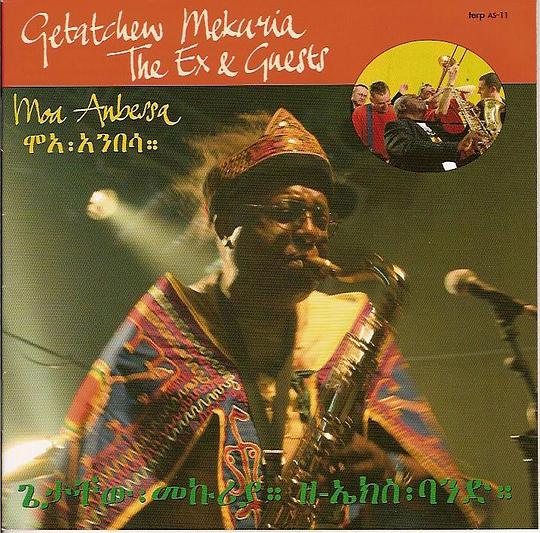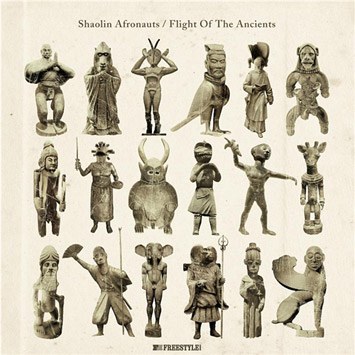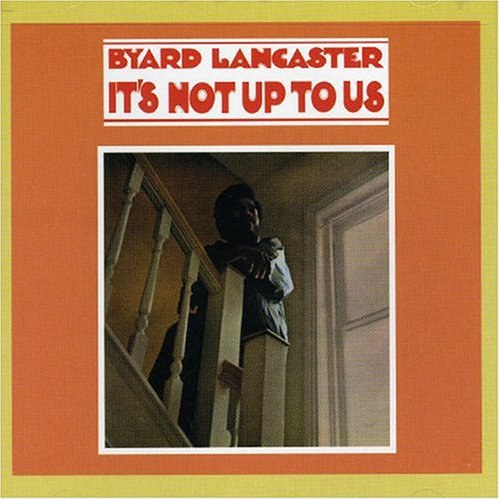Moa Anbessa 豆瓣
9.4 (7 个评分)
Getatchew Mekuria
/
The Ex
类型:
爵士
发布日期 2006年1月1日
出版发行:
Terp
...dream collaboration between the King of Ethiopian Sax and the hardest-working band in showbiz, much anticipated by myself and yes, it works.
As the liner notes explain, The Ex's collective mind was blown by the CD of Getatchew Mekuria's records from the early '70s, part of the wonderful Ethiopiques series by the French label Buda Musique. Not surprising really; 'Negus of Ethiopian Sax' (Vol 14) is one of the spookiest, most exotic and out-of-time records I've ever heard. Anyway, the liner notes also explain how the collaboration came about, so I won't here. It's a nice story. The CD booklet is easy on the eye and factoid-crammed, with an interview with Getatchew talking about his life and career, accompanied by lots of cool pictures from his archive, raising the roof with the Municipality Band and the Police Orchestra in Addis Ababa, Gonder, Asmara...
Joining our heroes is Colin Mclean, formerly of the Dog Faced Hermans, on bass and an international horn section of players from Ex-collaborators like the Instant Composer's Pool and Silent Block, I think - Xavier Charles, Brodie West, Joost Buis. Cor Fuhler contributes keyboards on some of the studio tracks. To be honest I think the horn section are the secret ingredient here. The recording is clear and bright, a mix of studio and live takes from this troupe's mini-tour round Europe last year (Which myself, The Doktor & Plaistow Dave travelled to Paris to see).
The Ex's sound has always been about relentless rhythm and building up suspense, with the guitars piling on extra percussion, noise and dynamic to the attack. Here though, they're not the focus but the rhythm section, so the horn section bring together their arrangements of these Ethiopian melodies to allow the lead voice, Getatchew's rich and lyrical playing, to shine.
Instrumentals like the war song 'Che Belew Shellela' gallop along and sounds more celebratory rather than martial. When The Ex slow down, they open up space for some lovely, evocative interplay between Getatchew and the horn section, then the whole band bring in the big band choruses and rock-out climaxes. The closing 'Aha Begena' has a great call-and-response of punk vocals (in Amharic!) and a loopy, catchy horn refrain over a driving beat which'll confuse your body into wanting to shoulder dance, Ethiopian-style, and pogo at the same time. Yah-Ho!
One of my favourite tunes from the original Ethiopiques CD is featured on 'Aynotche Terabu/Shemonmwaneye', with it's monumentally sad, plodding bass melody carrying the waves of chiming guitars, wailing horns and singer G W Sok's plain vocals to levels of incredible power which is as exicting and as the original recording, a beautiful meld of moody post-punk guitar and Ethiopian melancholy. On repeated listens I like it all, there's so much going on but it never turns into a mess, which is another tribute to the talent of all concerned here.
You can tell that everyone is having a great time and love what they're doing, which definitely makes this a collaboration rather than a fusion. About two-thirds through, Getatchew's solo spot 'Tezeta' allows him to step into spotlight and it it's a reminder why The Ex wanted to find the man in the first place and let more people hear his singular voice.
As the liner notes explain, The Ex's collective mind was blown by the CD of Getatchew Mekuria's records from the early '70s, part of the wonderful Ethiopiques series by the French label Buda Musique. Not surprising really; 'Negus of Ethiopian Sax' (Vol 14) is one of the spookiest, most exotic and out-of-time records I've ever heard. Anyway, the liner notes also explain how the collaboration came about, so I won't here. It's a nice story. The CD booklet is easy on the eye and factoid-crammed, with an interview with Getatchew talking about his life and career, accompanied by lots of cool pictures from his archive, raising the roof with the Municipality Band and the Police Orchestra in Addis Ababa, Gonder, Asmara...
Joining our heroes is Colin Mclean, formerly of the Dog Faced Hermans, on bass and an international horn section of players from Ex-collaborators like the Instant Composer's Pool and Silent Block, I think - Xavier Charles, Brodie West, Joost Buis. Cor Fuhler contributes keyboards on some of the studio tracks. To be honest I think the horn section are the secret ingredient here. The recording is clear and bright, a mix of studio and live takes from this troupe's mini-tour round Europe last year (Which myself, The Doktor & Plaistow Dave travelled to Paris to see).
The Ex's sound has always been about relentless rhythm and building up suspense, with the guitars piling on extra percussion, noise and dynamic to the attack. Here though, they're not the focus but the rhythm section, so the horn section bring together their arrangements of these Ethiopian melodies to allow the lead voice, Getatchew's rich and lyrical playing, to shine.
Instrumentals like the war song 'Che Belew Shellela' gallop along and sounds more celebratory rather than martial. When The Ex slow down, they open up space for some lovely, evocative interplay between Getatchew and the horn section, then the whole band bring in the big band choruses and rock-out climaxes. The closing 'Aha Begena' has a great call-and-response of punk vocals (in Amharic!) and a loopy, catchy horn refrain over a driving beat which'll confuse your body into wanting to shoulder dance, Ethiopian-style, and pogo at the same time. Yah-Ho!
One of my favourite tunes from the original Ethiopiques CD is featured on 'Aynotche Terabu/Shemonmwaneye', with it's monumentally sad, plodding bass melody carrying the waves of chiming guitars, wailing horns and singer G W Sok's plain vocals to levels of incredible power which is as exicting and as the original recording, a beautiful meld of moody post-punk guitar and Ethiopian melancholy. On repeated listens I like it all, there's so much going on but it never turns into a mess, which is another tribute to the talent of all concerned here.
You can tell that everyone is having a great time and love what they're doing, which definitely makes this a collaboration rather than a fusion. About two-thirds through, Getatchew's solo spot 'Tezeta' allows him to step into spotlight and it it's a reminder why The Ex wanted to find the man in the first place and let more people hear his singular voice.


